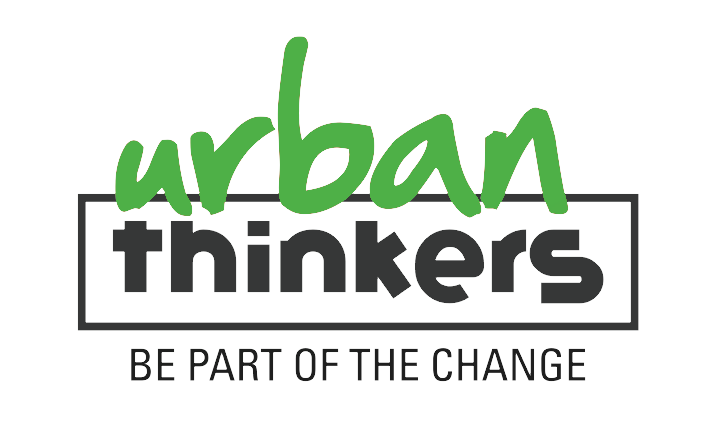CONSULTANT VACANCY ANNOUNCEMENT
Issued on: 26 February 2016
| ORGANIZATIONAL LOCATION: |
UN-HABITAT |
|
DUTY STATION: |
Nairobi, Kenya with some travels |
|
FUNCTIONAL TITLE: |
Consultant: Learning Management System (LMS) developer to design and develop a web-based e-learning platform, and specialist graphic design and presentation support, for select GLTN e-learning modules |
|
DURATION: |
5 months (spread across 9 months) |
|
CLOSING DATE: |
10 March 2016 |
BACKGROUND
The United Nations Human Settlements Programme, UN-Habitat, is mandated by the United Nations General Assembly to promote socially and environmentally sustainable towns and cities. It is the focal point for urbanization and human settlement matters within the UN system. The agency supports national and local governments in laying the foundation for sustainable urban development.
UN-Habitat envisions well-planned, well-governed, and efficient cities and other human settlements, with adequate housing, infrastructure, and universal access to employment and basic services such as water, energy and sanitation. To achieve these goals, derived from the Habitat Agenda of 1996, UN-Habitat has set itself a medium-term strategy approach for each successive six-year period; Medium-Term Strategic and Institutional Plan (MTSIP) 2008-2013 and Strategic Plan 2014-2019.
The Land and GLTN Unit within UN-Habitat hosts the Secretariat of the Global Land Tool Network (GLTN), which is a network of over sixty international institutions that was established in 2006 and since then has been working to promote secure land and property rights for all, through the development of pro-poor and gender appropriate land tools. The programme seeks to implement the “Resolution on sustainable urban development through expanding equitable access to land, housing, basic services and infrastructure”, GC23-17, passed by the 23rd Governing Council in April 2011. The GLTN’s objective is to ensure that “International organisations, UN-Habitat staff and related land programmes/projects and targeted national and local governments are better able to improve tenure security of the urban and rural poor.” Phase 2 of the programme (2012-2017), seeks to build on the success of the first phase that came to an end in 2011. Phase 2 of the GLTN places emphasis on improving capacity and tools development towards the achievement of tenure security for all in both urban and rural settings. The Project will be implemented in six years with an estimated budget of USD 40 Million where a portion of the budget has been secured from donors.
Three expected accomplishments are expected to contribute to the overall result namely:
- Expected Accomplishment 1: Strengthened land-related policy, institutional and technical frameworks and tools and approaches to address the challenges in delivering security of tenure at scale particularly for the urban and rural poor;
- Expected Accomplishment 2: Improved global knowledge and awareness on land-related policies, tools and approaches that are pro-poor, gender appropriate, effective and sustainable towards securing land and property rights for all and
- Expected Accomplishment 3: Strengthened capacity of partners, land actors and targeted countries, cities and municipalities to promote and implement appropriate land policies, tools and approaches that are pro-poor, gender appropriate, effective and sustainable.
Phase 2 of the GLTN programme is coordinated by the GLTN Secretariat, which is housed within the Land and GLTN Unit of the Urban Legislation and Governance branch of UN-Habitat. The Secretariat is tasked with supporting the planning, implementation, monitoring and evaluation of the activities of the Network in collaboration with partners including at country level.
PURPOSE OF THE ASSIGNMENT
Capacity development is a central part of the activities of the Global Land Tool Network, and a project is underway to integrate e-learning into this work. In order to deliver e-learning models and courses to our target audience, a suitable web-based e-learning platform needs to be designed and developed. In addition, specialist graphic design and presentation support is required to translate draft e-learning modules from narrative and story-board stage to the final, web-based product.
RESPONSIBILITIES
Under the overall supervision of the Unit Leader of Land and GLTN Unit under the Urban Legislation, Land and Governance Branch of UN-Habitat or the GLTN Capacity Development Expert (as duly authorised), the consultant will perform the following tasks and responsibilities:
- Liaise with GLTN staff and consultants to consolidate relevant learning materials and resources for the Gender Evaluation Criteria (GEC) and Social Tenure Domain Model (STDM) tools respectively.
- Design user interface (UI) mock-ups, user experience (UX) diagrams or appropriate wireframes illustrating the structure and flow for different user journeys within the platform such as user registration, course enrolment.
- Develop the core e-learning platform and incorporate the corresponding features and resources. The design and development should be supported by appropriate system architecture and UML model diagrams, as well as test scripts for each module.
- Ensure quality assurance and testing of all features and resources within GLTN’s online infrastructure.
- Ensure that the user interface text can be easily translated using appropriate tools provided by the core platform.
- Package the contents and resources for the online courses and corresponding modules therein each course.
- Prepare the respective user manuals for administrators and end users of the platform.
- Active and effective engagement with GLTN key staff and partners in ensuring quality of the platform.
- Assist with application development estimating, planning and progress tracking.
- Provide the necessary training and capacity development in maintaining the platform and managing online courses.
- Work closely with the Secretariat and designated e-learning module designers, providing specialist graphic design and presentation support to translate their draft modules from narrative and story-board stage to final, web-based products.
- Perform other related tasks as necessary.
DELIVERABLES
In addition to the technical support provided by the consultant as described above, the specific deliverables of the consultancy are:
- E-learning platform designed and in place
- Gender Evaluation Criteria course on-line and operational
- Social Tenure Domain model resources on-line
- User manuals for administrators and end users of the platform produced
- Four GLTN Secretariat staff trained in maintaining the platform and managing online courses.
COMPETENCIES (maximum of five)
- Professionalism: Shows pride in work and in achievements. Demonstrates professional competence and mastery of subject matter. Is conscientious and efficient in meeting commitments, observing deadlines and achieving results. Is motivated by professional rather than personal concerns. Shows persistence when faced with difficult problems or challenges. Remains calm in stressful situations.
- Communication: Speaks and writes clearly and effectively. Listens to others, correctly interprets messages from others and responds appropriately. Asks questions to clarify, and exhibits interest in having two-way communication. Tailors language, tone, style and format to match the audience. Demonstrates openness in sharing information and keeping people informed.
- Planning and Organising: Develops clear goals that are consistent with agreed strategies. Identifies priority activities and assignments; adjusts priorities as required. Allocates appropriate amount of time and resources for completing work. Foresees risks and allows for contingencies when planning. Monitors and adjusts plans and actions as necessary. Uses time efficiently.
- Technological Awareness: Keeps abreast of available technology. Understands applicability and limitations of technology to the work of the office. Actively seeks to apply technology to appropriate tasks. Shows willingness to learn new technology.
EDUCATION
Bachelor’s or master’s in Computer Science, Educational Technology or a related field.
WORK EXPERIENCE
- At least one year of relevant hands-on experience in self-learning tools or learning technologies.
- Demonstrated experience in implementing open-source learning management systems. Knowledge of Moodle is highly recommended.
- Strong object-oriented and programming skills in server-side web technologies such as JSP, PHP or ASP.NET.
- Knowledge of Agile methodologies such as Scrum is required.
- Proven ability to innovate and implement unique solutions to respond to specific learning requirements is required.
- Experience managing complex training projects involving various subject matter experts is required.
- Ability to clearly communicate technical ideas, whether to technical or non-technical GLTN staff and partners.
- Strong organizational skills & ability to handle multiple tasks under tight deadlines is essential.
- Ability to write technical documentation.
- Excellent oral and written communication skills in English.
LANGUAGE SKILLS
English and French are the working languages of the United Nations. For the post advertised, excellent proficiency in spoken and written English is required. Knowledge of a second UN language is an advantage.
REMUNERATION
Payments will be based on deliverables over the consultancy period. There are set remuneration rates for consultancies. The rate is determined by functions performed and experience of the consultant. The fees will be paid as per agreement.
|
Applications should include:
All applications should be submitted to: Please be advised that since April 15th 2010, applicants for consultancies must be part of the Deadline for applications: 10 March 2016 UN-Habitat does not charge a fee at any stage of the recruitment process. If you have any questions concerning persons or companies claiming to be recruiting on behalf of these offices and requesting the payment of a fee, please contact: recruitment@unon.org
|
Source: unhabitat.org

Neueste Beiträge
- Experts internationaux et nationaux,(Conakry, Guinée et à domicile), DATE DE CLOTURE: 30 juin 2019
- Call for Expressions of Interest to Host the Global Water Operators’ Partnerships Alliance Secretariat
- EoI – URBAN PATHWAYS – Supporting Low Carbon Plans for Urban Basic Services in the context of the New Urban Agenda
- Sierra Leone hosts stakeholders meeting on New Urban Agenda and WUF 10
- Declaration of the First Global Stakeholder Forum of the First UN Habitat Assembly
Archive
- Juni 2019
- Mai 2019
- April 2019
- März 2019
- Februar 2019
- Januar 2019
- Dezember 2018
- November 2018
- Oktober 2018
- September 2018
- August 2018
- Juli 2018
- Juni 2018
- Mai 2018
- April 2018
- März 2018
- Februar 2018
- Januar 2018
- Dezember 2017
- November 2017
- Oktober 2017
- September 2017
- August 2017
- Juli 2017
- Juni 2017
- Mai 2017
- April 2017
- März 2017
- Februar 2017
- Januar 2017
- Dezember 2016
- November 2016
- Oktober 2016
- September 2016
- August 2016
- Juli 2016
- Juni 2016
- Mai 2016
- April 2016
- März 2016
- Februar 2016
- Januar 2016
- Dezember 2015
- September 2015
- April 2014
- Dezember 2012
- März 2012
